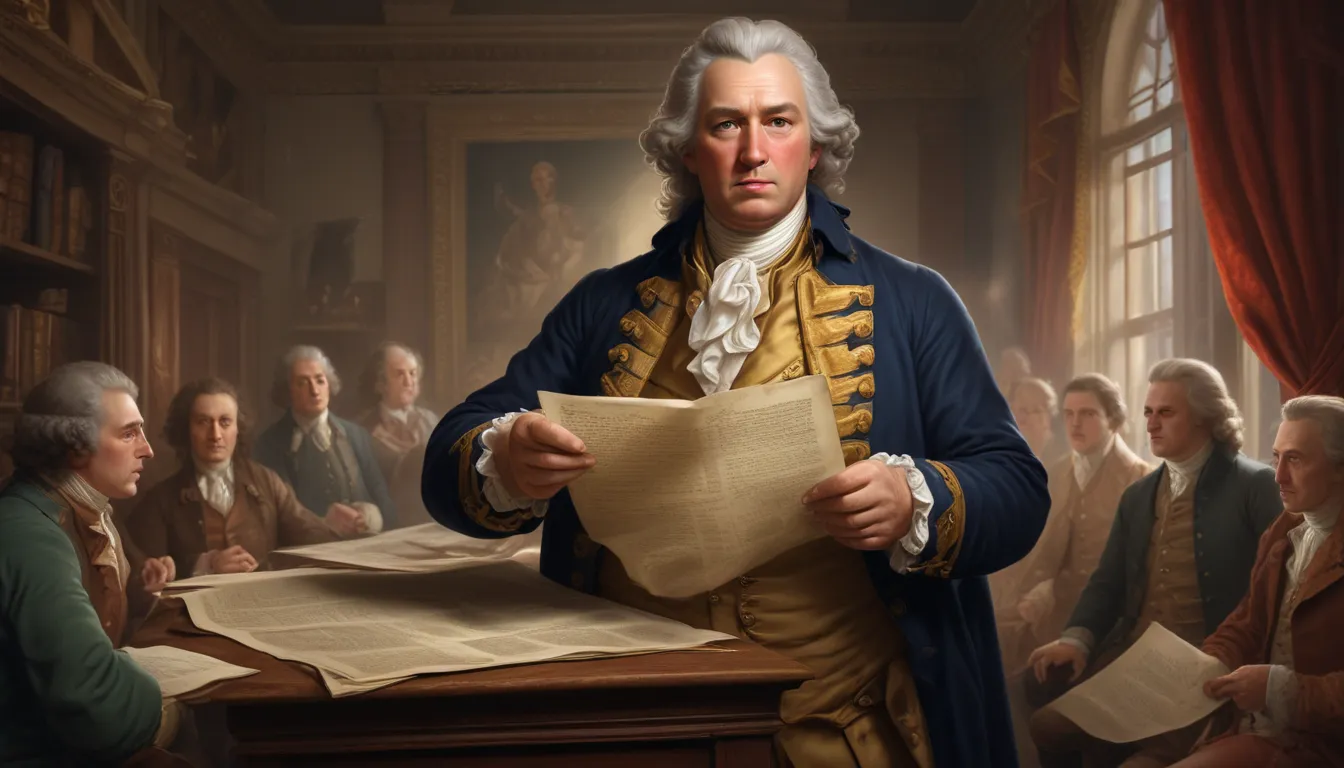The images in our articles may not match the content exactly. They are used to grab your attention, not to show the exact details in the text. The images complement the text but do not replace it.
Are you curious about the historical impact of the Proclamation of 1763? Let’s delve into the depths of this pivotal moment in history together. This proclamation wasn’t just a mere document; it was a game-changer that shaped the future of North America in ways that reverberate even today. Picture being told where you can and cannot live based on a line drawn on a map by individuals who had never set foot on the land they were dividing. Sounds intriguing, right? The Proclamation of 1763 was Britain’s effort to maintain peace with Native Americans by halting settlers from encroaching on their lands. However, this well-intentioned move backfired, sparking discontent among colonists and sowing the seeds of revolution. So, why is the Proclamation of 1763 significant? It marked a critical juncture where colonial ambitions clashed with indigenous rights, laying the foundation for future conflicts and transformations in the New World.
Understanding the Proclamation of 1763
The Proclamation of 1763 was a decree issued by King George III after Great Britain acquired French territory in North America following the French and Indian War/Seven Years’ War. This proclamation prohibited all settlement west of a boundary drawn along the Appalachian Mountains. The primary purpose was to appease Native Americans by preventing settlers from encroaching on their lands.
Reasons Behind the Proclamation
-
Conflict Prevention with Native Americans: Tensions were running high between British settlers and Native Americans after the French and Indian War. The British government aimed to avoid costly clashes by restraining further encroachment.
-
Control and Management: By regulating settlement, the British government could effectively manage its vast territory, ensuring orderly economic development and settlement patterns.
Key Attributes of the Proclamation
-
Establishment of a Boundary: The Proclamation Line served as a temporary boundary to organize the colonies and maintain peace with Native American tribes.
-
Trade Regulation: It attempted to oversee trade between Native Americans and settlers, promoting fair dealings on both sides.
-
Official Land Purchases: Any land acquisitions beyond the Proclamation Line required approval from the British Crown to prevent unauthorized expansion.
Colonial Reaction to the Proclamation
The Proclamation received a mixed reception among colonists, triggering widespread dissatisfaction and seen as an overreach by the Crown. Many settlers and land speculators viewed the proclamation as restrictive, limiting their ability to profit from westward expansion and land sales, fueling discontent that eventually led to the American Revolution.
Impact on Native American Relations
Initially, the Proclamation led to a temporary decrease in conflicts between settlers and Native Americans by halting westward expansion. However, the British government’s inability to enforce the boundary effectively resulted in continued encroachment and conflicts in the long run.
The Proclamation’s Historical Role
The Proclamation of 1763 served as a precursor to the American Revolution, contributing to escalating tensions between Britain and its colonies. It also influenced the United States’ westward expansion even after independence, shaping land rights and settlement patterns.
The Legacy of the Proclamation Line
While the Proclamation Line no longer holds as a legal boundary, its influence on American history and its role in shaping early American society remain significant. Today, it serves as an educational tool, offering insights into the complex relationships between European settlers, Native Americans, and the British Crown during a crucial era in North American history.
Wrapping Up the Proclamation of 1763
By unraveling the layers of history surrounding the Proclamation of 1763, we’ve unearthed a pivotal moment that reshaped the destiny of North America. From easing frontier tensions to unintentionally propelling American independence, each fact contributes a piece to our historical puzzle. Understanding this proclamation unravels the intricate web of events that culminated in the world we inhabit today. Let’s carry forward these lessons and stories, acknowledging their enduring impact on the historical tapestry.
Frequently Asked Questions
Q: What was the Proclamation of 1763?
A: The Proclamation of 1763 was a decree issued by King George III to organize Great Britain’s new North American empire and stabilize relations with Native North Americans.
Q: Why did the Proclamation of 1763 anger American colonists?
A: American colonists were frustrated because the proclamation restricted their ability to settle or purchase land west of the Appalachian Mountains, limiting economic opportunities.
Q: How did the Proclamation of 1763 affect Native Americans?
A: The proclamation recognized Native American land rights and aimed to prevent encroachment by settlers but also established a boundary that many Native American groups contested.
Q: Was the Proclamation of 1763 effective?
A: While it had a solid theoretical basis, enforcing the proclamation proved challenging in practice, leading to widespread disregard of the boundary by settlers.
Q: How long was the Proclamation of 1763 in effect?
A: The proclamation remained in effect until the American Revolution, after which the new United States government determined its policies on westward expansion.
Q: Did the Proclamation of 1763 lead to the American Revolution?
A: While not a direct cause, the proclamation added to the grievances that fueled the push for American independence.
Q: Can places related to the Proclamation of 1763 be visited today?
A: Indeed! Many historic sites across the eastern United States highlight this era, offering insights into the impact of the proclamation on America’s early development.
Valuing Facts and Engagement
Our commitment to providing reliable and captivating content shapes our mission. Every fact shared on our platform is contributed by real users, enriching our information repository. Rest assured, our dedicated editors meticulously review each submission to maintain the highest standards of accuracy and authenticity. Explore and learn with confidence, trusting our dedication to quality and genuine insights.






